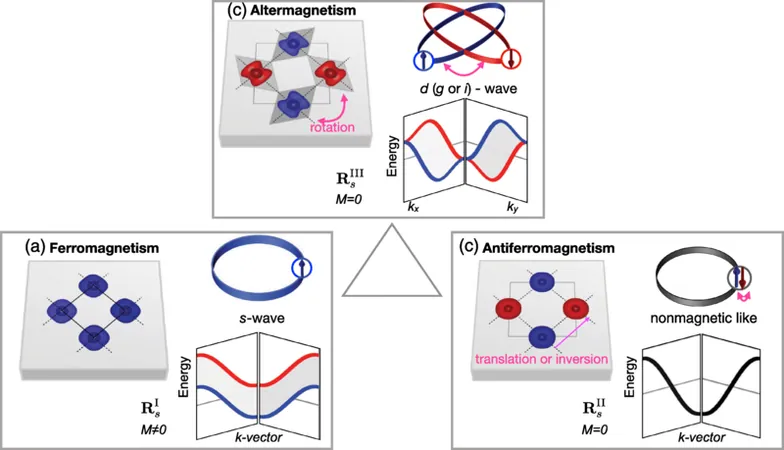
2024: The Year Apple Embraced AI — A Game-Changing Shift
2024-12-20
Author: Amelia
Introduction
In a major strategic shift, 2024 marked Apple's transformation from its long-standing goal of developing electric vehicles (EVs) to diving headfirst into the rapidly evolving world of artificial intelligence (AI). The tech giant chose to leverage its vast iPhone and Mac user base to establish its dominance in the AI sector.
The Shift from EVs to AI
The road to this new direction was fraught with challenges. Apple officially abandoned its ambitious “Project Titan” EV project, reallocating over 2,000 employees to focus on generative AI initiatives. This decision was influenced by fierce competition from both established tech companies and AI-focused startups, like OpenAI and Anthropic. As Microsoft, Google, and Meta raced ahead in the AI landscape, Apple faced the daunting task of catching up to these industry leaders.
Rollout of Apple Intelligence
The rollout of "Apple Intelligence," showcasing AI capabilities for text and image generation, personalized Siri features, and secure on-device data processing, began in stages. However, analysts are questioning whether this initiative can indeed boost smartphone upgrades, especially given that a significant 45% of U.S. adults surveyed reported they have no intention of using AI features on their gadgets, according to a YouGov poll.
Anticipation and Risk
In June, anticipation built with the announcement of Apple Intelligence, but the company's agile moves came at a risk. Apple introduced AI-capable devices like the Mac and the iPhone 15 Pro ahead of the rollout of the new AI functionalities, indicating a bold but potentially premature strategy. By December, features such as Visual Intelligence, Image Playground, Genmoji, and integrated ChatGPT functionality were made available to compatible devices, marking a significant step in Apple's AI journey.
Infrastructure and Development
In addition to enhancing device capabilities, Apple made moves to strengthen its AI infrastructure by partnering with Google for AI processing units, instead of relying solely on Nvidia. Furthermore, Apple is developing its proprietary Project ACDC servers to mitigate dependence on third-party data center providers, indicating a significant commitment to establishing a strong in-house capacity for AI processing.
Regulatory Challenges
However, not all news has been positive. Apple faces rising regulatory scrutiny, particularly in the EU, which has begun to delay the rollout of AI features in the region due to stringent regulations. The company has been under investigation and faced substantial fines related to its App Store practices and potential violations of the Digital Markets Act (DMA). This regulatory pressure is further exacerbated by recent fines totaling €1.84 billion ($1.95 billion) and possible penalties that could reach €35 billion ($38 billion).
Response to Regulation
In response to these regulatory challenges, Apple is changing some of its operations in the EU and attempting to make its devices more open to third-party marketplaces. Despite these efforts, EU regulatory bodies remain dissatisfied, underscoring the urgent need for major tech firms to reassess their app ecosystem practices.
Looking Ahead
Looking ahead, 2025 is poised to be a pivotal year for Apple as the company aims to redefine its services and products through AI innovation. Balancing these innovations with increasing regulatory pressures will be crucial for Apple's journey to establish itself as a leader in the AI sector. With looming fines and compliance challenges ahead, the intricacies of navigating both technology and regulation will likely shape the future of the company as it ventures deeper into AI.
Conclusion
Stay tuned for what promised to be a transformative year for Apple!









 Brasil (PT)
Brasil (PT)
 Canada (EN)
Canada (EN)
 Chile (ES)
Chile (ES)
 España (ES)
España (ES)
 France (FR)
France (FR)
 Hong Kong (EN)
Hong Kong (EN)
 Italia (IT)
Italia (IT)
 日本 (JA)
日本 (JA)
 Magyarország (HU)
Magyarország (HU)
 Norge (NO)
Norge (NO)
 Polska (PL)
Polska (PL)
 Schweiz (DE)
Schweiz (DE)
 Singapore (EN)
Singapore (EN)
 Sverige (SV)
Sverige (SV)
 Suomi (FI)
Suomi (FI)
 Türkiye (TR)
Türkiye (TR)